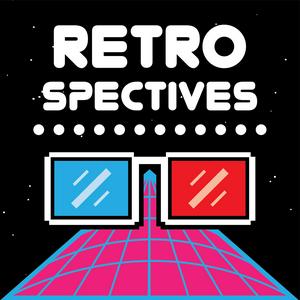E124: Crysis
But can it run Crysis? This was the motto that surrounded every single PC build for literal years after the release of the game in 2007. Crytek were not satisfied with what they had achieved with Far Cry in 2004, and decided to push graphical hardware to its absolute limits with their brand new and shiny game. And boy, did they succeed, with a poorly optimised but breathtakingly gorgeous game. Even better, there was an entire video game attached to this graphical showcase, promising open ended tactical engagements over massive levels, far removed from corridor brawling.You have cool suit powers that switch between modes, on the fly weapon modification, and a wide array of guns (and vehicles) to wreak havoc on those pesky North Koreans. And if there are aliens, well, the United States of kick ass will just have to murder them as well. It seems like an incredible game on paper, even today when we have more open world games than you can shake a stick at.But for all that Crysis is vaunted for its massive leap forward in graphical technology, just how good a game is it to actually play? Are the suit powers really that interesting in the face of the many RPG systems that tend to overlap FPS games today? And is fighting those aliens all its cracked up to be? Is Crysis worth your time to play today, or is it better remembered?On this episode, we discuss:The Suit.Crysis’s key feature is a powerful exoskeleton that lets you switch between 4 modes - Strength, Armor, Speed and Stealth. Just how well does the game push these suit modes in terms of engaging gameplay? Are they balanced, and more importantly, are they fun to use?The Guns.How fun is the gunplay in Crysis? The game features a fairly typical roster of assault rifles, submachine guns and shotguns, but has weapon modification on the fly with a simple menu. Does this do enough to spice up the gunplay and keep things interesting?The level design.Crysis features (mostly) semi-open world level design, with bespoke objectives. Does this give you the freedom to approach them in the way you want, and does it maintain this philosophy for the entire run time of the game?We answer these questions and many more on the 124th episode of the Retro Spectives Podcast! Intro Music: KieLoBot - Tanzen KOutro Music: Rockit Maxx - One point to anotherCrysis OST: Inon Zur The original version of the game, available on GOG, will fail to start on modern operating systems (Windows 10+). This can be fixed using the below link, which James used for this https://github.com/ccomrade/c1-launcher Do you know what the gameplay differences are between Crysis 1 and the remastered version? Do you think that Crysis is better than the Far Cry games that came afterwards? When are we going to play Far Cry 2? Come let us know what you think on our community discord server!If you would like to support the show monetarily, you can buy us a coffee here!
